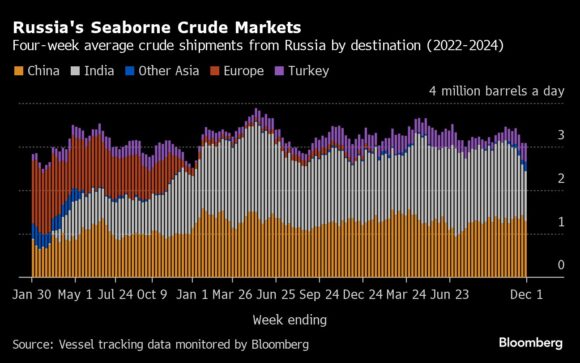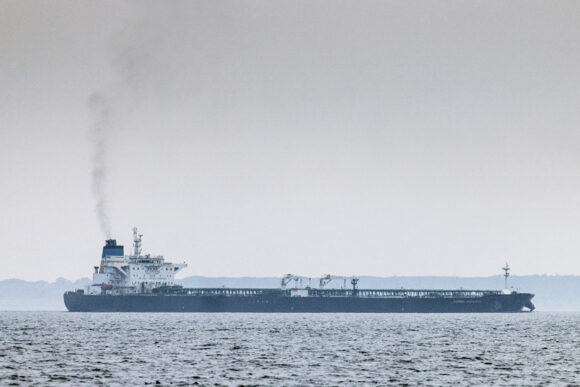Group of Seven nations are exploring ways to toughen the price cap on Russian oil as they seek to better target Moscow’s ability to fund its war against Ukraine, according to people familiar with the matter.
Options under consideration range from essentially replacing the mechanism with a full ban on handling Russian crude to lowering the price threshold from the current $60 to about $40, the people said. The people, who spoke on condition of anonymity to discuss sensitive talks, cautioned that discussions were ongoing and there’s no consensus yet on a next step.
Under the current terms of the price cap, western operators can insure and transport oil only when it’s purchased below the price threshold. The US and European Union also introduced an embargo on most imports in the months after Russia’s full-scale invasion.
That’s seen Moscow turn to a covert fleet of tankers, often operating with unknown insurers or owners, to move its crude to new markets, particularly in Asia. This shadow fleet has helped Russia work around the restrictions, with prices for its crude selling above the price cap for most of the year.
In response, G-7 nations have sanctioned dozens of vessels and entities involved in these shadow trades. A number of Northern European countries also are ramping up insurance checks on passing Russian tankers.

The price cap was originally designed to limit the amount of money Russia makes from its oil sales while keeping global oil prices from skyrocketing. With prices for oil slipping amid forecasts of a global surplus in 2025, Ukraine’s allies are open to taking more aggressive action, Bloomberg previously reported.
As they weigh possible options, G-7 nations are looking to balance the potential economic impact of any measures with other issues such as maritime safety, with some arguing that trade could benefit from Moscow using more reliable operators, the people said.
Photograph: The shadow fleet tanker Turbo Voyager transits through the Great Belt of Denmark off the coast of Agerso, Denmark, on Thursday, Aug. 15. 2024. On the small Danish island of Agerso, fisherman and beach-goers see old tankers carry Russian oil through Denmark’s narrow straits on a daily basis. Photo credit: Carsten Snejbjerg/Bloomberg
Related:
